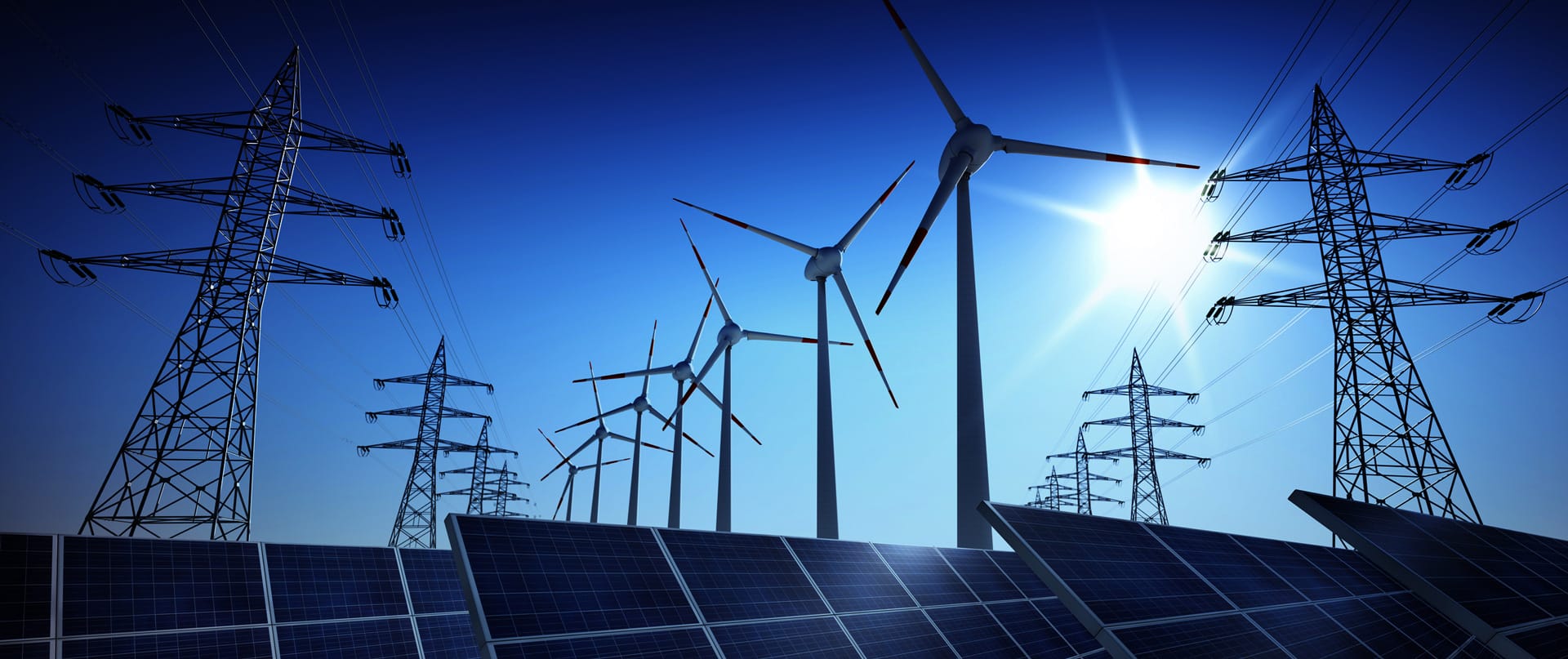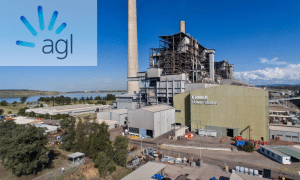In recent years, the world has witnessed a significant shift towards sustainable energy solutions to combat climate change and reduce dependence on fossil fuels. In Australia, as in many parts of the globe, the focus has turned towards renewable energy sources and innovative energy distribution systems. An intriguing development in this landscape is the emergence of renewable microgrids as a potential solution for powering regional areas.
Are you looking to save money on your electricity bills and reduce your carbon footprint? Solar energy is the perfect solution! Energy Matters can help you get up to 3 FREE quotes from pre-qualified and vetted solar firms in your area.
Energy Matters has been a leader in the renewable energy industry since 2005 and has helped over 40,000 Australian households in their journey to energy independence. With Energy Matters, you can be sure you’re getting the best possible deal on solar energy. We only work with reputable solar firms with a proven track record of delivering high-quality solar systems. Learn more: Why Solar Is Cheaper Than Electricity – Especially in NSW.
What is a microgrid system?
Regional Australia is facing a number of challenges, including climate change, population decline, and aging infrastructure. These challenges strain the region’s energy supply, and there is a growing interest in using all-renewable microgrids to provide a more reliable and sustainable power source.
A microgrid is a small-scale power system that can operate independently of the main electricity grid. It can be powered by various renewable energy sources, such as solar, wind, and hydropower. Microgrids can power a single home, business, or an entire community.
The future of microgrids in regional Australia is uncertain, but these systems have a lot of potential to provide a more reliable, sustainable, and resilient power source. As the cost of renewable energy and energy storage continues to fall, microgrids will likely become more affordable and widespread.
All-renewable microgrids have the potential to play a major role in the future of energy supply in regional Australia. They can help to reduce reliance on fossil fuels, improve reliability, resilience, and sustainability, create jobs and boost the economy.
Endeavour Energy: All-renewable microgrid projects
Bawley Point and Kiolo, NSW South Coast
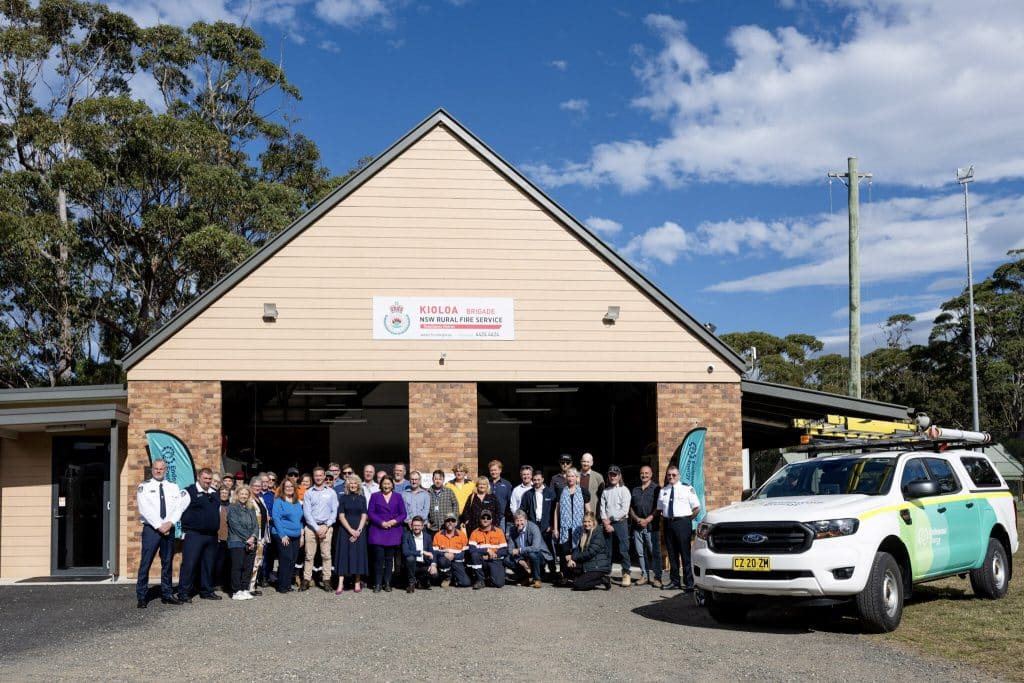
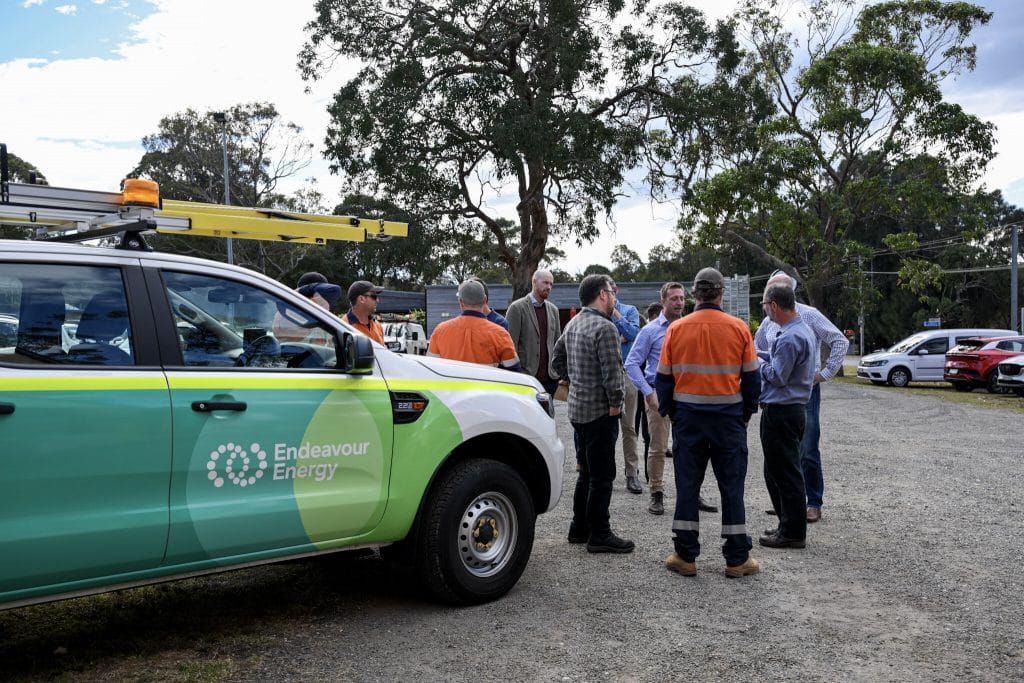
Bawley Point and Kioloa, positioned approximately 250km south of Sydney, are at the forefront of innovation. Around 100 homes in these towns are outfitted with subsidised solar panels or batteries, contributing to the creation of New South Wales‘ first-ever community microgrid. Expected to become operational by year-end, this groundbreaking initiative ensures a dependable, stand-alone, and renewable electricity supply while concurrently reducing the frequency of power disruptions. This $8 million community microgrid project is made possible through collaborations between the Australian and NSW Government’s Bushfire Local Economic Recovery Fund, Endeavour Energy, and local residents. The microgrid will operate as an autonomous energy system, harnessing power from renewable sources such as rooftop solar panels, household batteries, and a strategically positioned 3MW grid-connected battery situated between the two towns. This innovative arrangement empowers the microgrid to function independently during power outages, effectively forming an island of power to serve the community.
Bawley Point and Kiolo, NSW South Coast
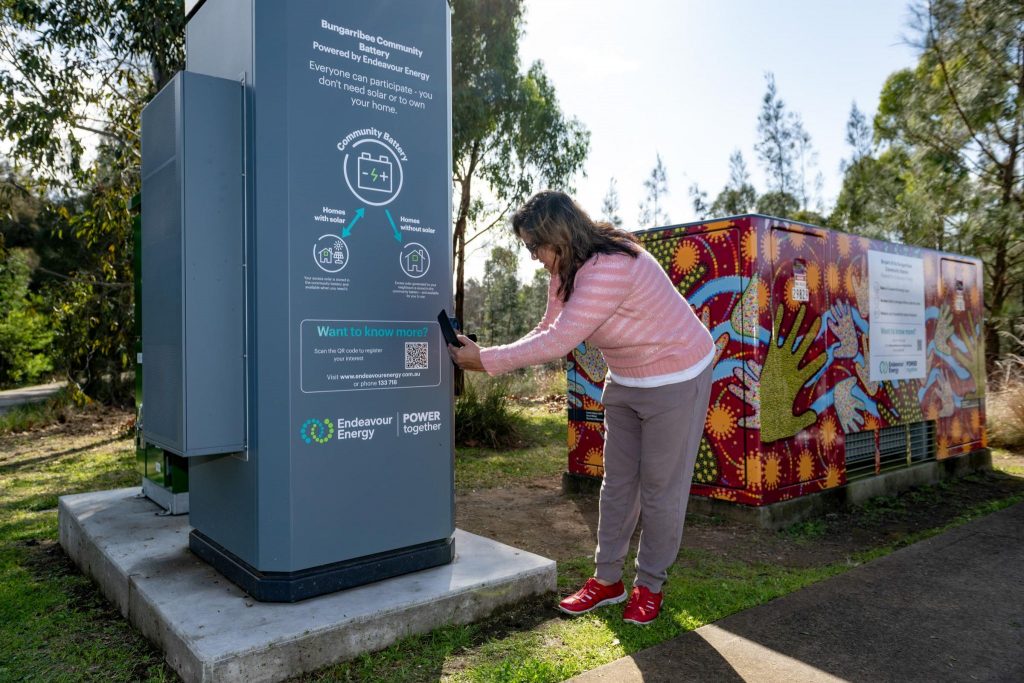
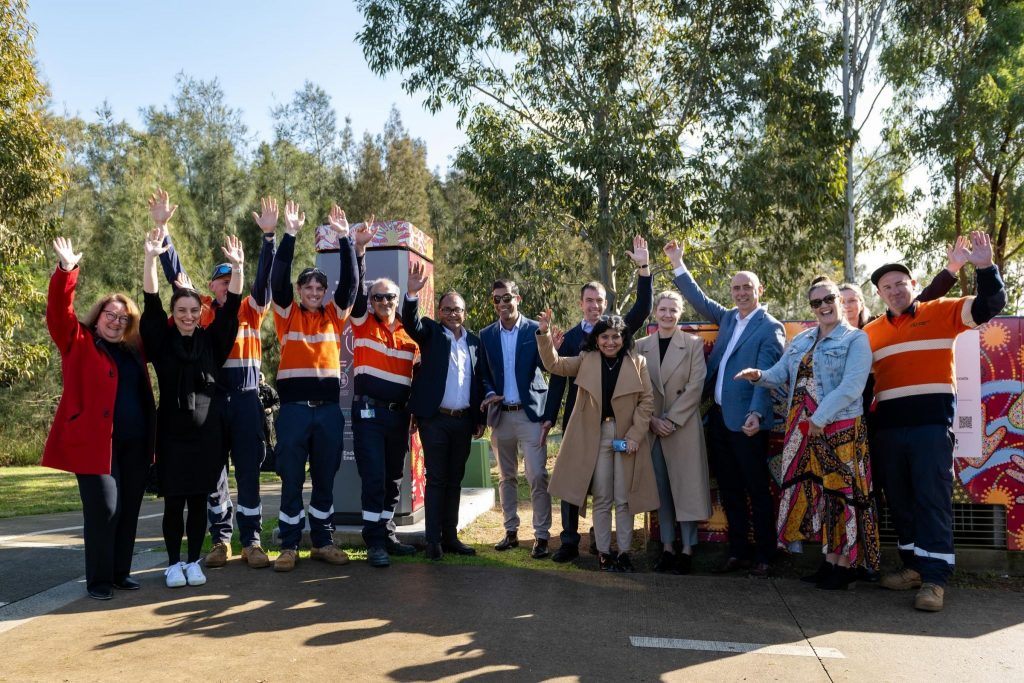
The unveiling of Western Sydney’s inaugural community battery was marked by a formal launch attended by prominent figures including Endeavour Energy CEO Guy Chalkley, The Hon Penny Sharpe MLC (NSW Minister for Climate Change and Minister for Energy), Stephen Bali (local MP for Blacktown), Tony Bleasdale OAM (Blacktown City Mayor), and Frank Calabria (Origin Energy CEO).
The introduction of the Bungarribee Community Battery represents a progressive move by Endeavour Energy aimed at shaping Western Sydney into a hub of green energy. With a heritage of powering the region for over a century, Endeavour Energy strives to meet modern energy needs while ensuring environmental sustainability. The battery initiative aligns with their ambition to achieve climate positivity by 2040 and facilitate an effective energy transition. Community members will play a pivotal role in this transition, irrespective of their solar panel ownership or home tenure, as the battery technology enables them to generate, store, and share energy efficiently. The community battery empowers residents and contributes to a cleaner, more affordable energy landscape. Mayor Tony Bleasdale OAM hailed the battery’s arrival in Bungarribee, highlighting its positive impact on the environment and the local economy.
In full support of this endeavour, Blacktown City Council anticipates numerous environmental and financial benefits, including reduced household energy costs and carbon footprints. The community’s warm reception for this initiative opens doors for further community batteries across the city, ensuring wider access to eco-friendly, renewable solar power. Origin Energy will be pivotal in facilitating the battery trial, offering a platform for customer participation and managing energy storage and distribution. Origin CEO Frank Calabria emphasised the partnership’s importance, underlining the potential for customers to experience the advantages of community batteries, further contributing to the dynamic changes in the energy landscape. As the first of many, the Bungarribee Community Battery is a beacon of sustainable progress, actively allowing residents to shape a greener future for Western Sydney.
Learn more: Why Solar Is Cheaper Than Electricity – Especially in NSW
Source&Images: Endeavour Energy Media Releases-01 Aug&25 July and Linkedin
Benefits of renewable microgrids for regional Australia
Energy security and reliability: One of the most significant advantages of renewable microgrids is their ability to ensure a reliable energy supply in regions with limited access to the main power grid. By harnessing energy from local renewable sources like solar, wind, or hydroelectric systems, microgrids can reduce the dependence on distant power generation facilities, thereby enhancing energy security.
Resilience during disasters: Regional areas are often vulnerable to extreme weather events and natural disasters that can disrupt conventional power supply. Microgrids with energy storage systems can continue operating during grid outages, offering a vital lifeline for critical services such as hospitals, emergency shelters, and communication networks.
Economic advantages: Renewable microgrids can provide economic benefits to regional communities. By leveraging local renewable resources, these microgrids can lower energy costs and create new job opportunities in the clean energy sector, contributing to local economic growth.
Reduced carbon footprint: Integrating renewable energy sources significantly reduces greenhouse gas emissions, aligning with Australia’s commitments to mitigate climate change. Microgrids enable communities to transition from fossil fuels and promote a more sustainable energy mix.
Create jobs: The development and operation of microgrids can create jobs in regional Australia. This is important for the economic development of these areas.
Challenges and considerations
While renewable microgrids hold great promise, some challenges must be addressed:
Integration and scalability: Integrating diverse renewable sources, energy storage, and control systems into a single microgrid can be complex. Ensuring seamless integration and scalability to meet the evolving energy needs of a community is a technical challenge.
Regulatory hurdles: Current energy regulations and policies might not fully accommodate the decentralised nature of microgrids. Regulatory reforms are needed to enable seamless integration into the existing energy landscape.
Initial costs: The upfront investment required to establish a renewable microgrid can be substantial. While the long-term operational cost savings are significant, securing financing for the initial setup can be a barrier for some communities.
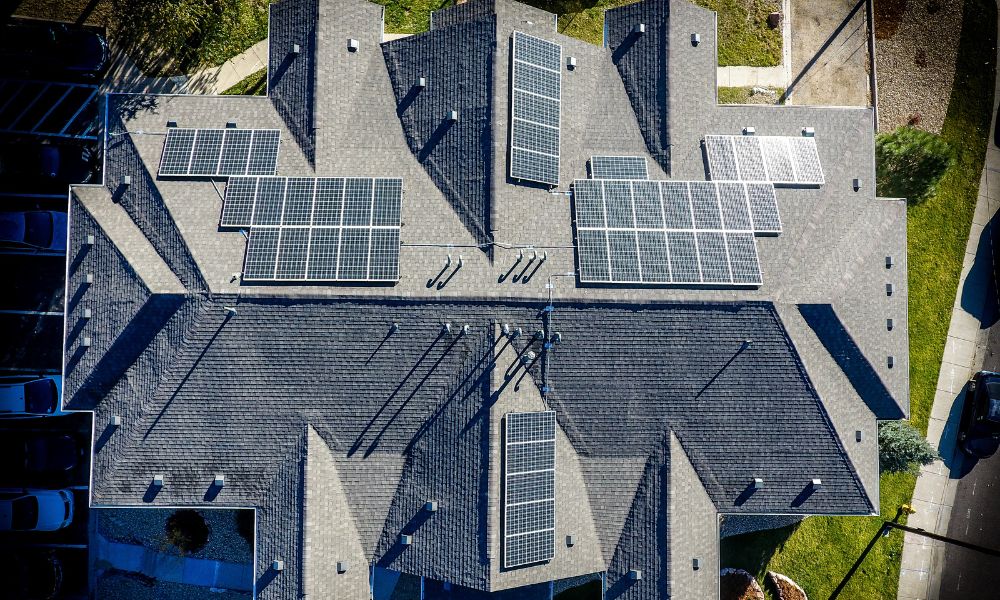
The path forward
To fully realise their potential, a multi-faceted approach is required:
Policy support: Governments should formulate policies that incentivise the development of renewable microgrids, including streamlined permitting processes, financial incentives, and regulatory frameworks enabling seamless integration.
Technological innovation: Continued research and development in smart grid technologies, energy storage, and control systems are crucial to enhance the efficiency, reliability, and scalability of microgrid solutions.
Community engagement: Successful implementation of microgrids requires collaboration with local communities. Community engagement and education can foster a sense of ownership and encourage participation in adopting cleaner and more resilient energy solutions.
Renewable microgrids offer a promising avenue for addressing the energy challenges faced by regional Australia. Combining the strengths of local renewable resources, energy storage, and advanced control technologies, these microgrids can enhance energy security, reduce carbon emissions, and promote economic growth. While challenges exist, proactive policies, technological advancements, and community involvement can pave the way for a future where renewable microgrids play a pivotal role in shaping the energy landscape of regional Australia.
Still can’t afford to switch to solar power?
Are you considering getting solar panels but are currently short on funds? You can still invest wisely, and Energy Matters can help you.
Powow and Energy Matters have teamed up to provide consumers with an alternative to switching to solar power and battery storage.
The biggest obstacle to installing solar and battery storage is typically finance. With Powow’s PPA and VPP, our customers will have a $0 upfront option and financial stability in the uncertain energy market.
Get up to 3 obligation-free quotes by getting in touch with us right away. Find out what payment plan options suit your needs and budget!









